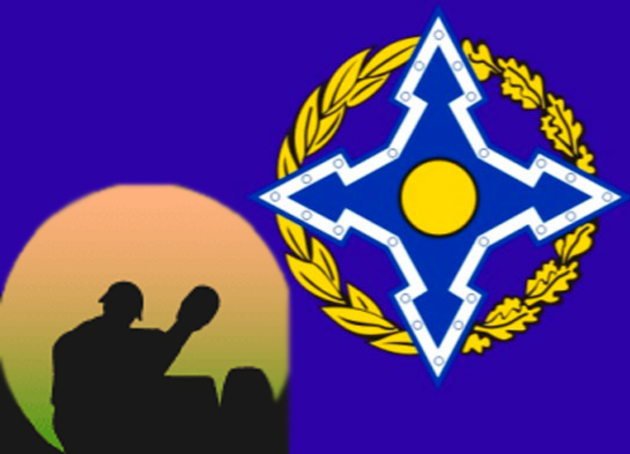In connection with the situation on the Armenian-Azerbaijani border, information pressure on Russia is growing in the Armenian information field. Inspired by signals of support from France and the United States, the Armenian authorities launched an information attack on Moscow.
So, one of the mouthpieces of the Armenian Telegram segment, who returned to the ranks of Pashinyan's loyal supporters after a short flirtation with the opposition, the channel
@ Bagramyan26 writes: "The CSTO continues to prove its uselessness. Armenia officially applied to the CSTO for help a few days ago. The organization first said that it had not received an appeal yet, and then they received it, but said that it takes 3 days to get an answer ... does not rush to make an assessment in connection with the invasion of Azerbaijani forces into the territory of Armenia and clearly does not want to interfere in the Armenian-Azerbaijani relations.However, the CSTO faces a difficult choice: the organization either proves that it, as a military alliance, is capable of at least something in the region, or once again shows his military-political impotence. "
Or, for example, the site "First Information", which also stands out for its loyalty to the regime of Nikol Pashinyan, notes: "If the world should help Armenia in solving important issues, and then the Armenian statehood and state policy will continue to serve this to resolve Russian issues, then this help has no practical meaning for the world. "
As Vestnik Kavkaza has already noted (see Corridor to Nakhchivan: Yerevan is revolting, Moscow and Baku are losing patience), notorious pro-Western nationalists from Sasna Tsrer, ideological followers of Garegin Nzhdeh, from the first days of the notorious "Zangezur crisis" began to actively oppose Russia and, of course, for Pashinyan.
Meanwhile, Secretary of the Armenian Security Council Armen Grigoryan claims that the potential and capabilities of the Armenian army after the defeat in Karabakh "have been largely restored." If we are talking about the amnesty for thousands of deserters, which was recently signed by President Armen Sarkissian, then Grigoryan's words about "restoring potential" make sense. A big question, however, why does Armenia need to restore anything at all, if the "NKR defense army" fought against Azerbaijan, as the official Armenian propaganda claims, all 44 days? The question is, of course, rhetorical.
Simultaneously with the bravado of "Soros member" Armen Grigoryan, the Ministry of Defense in Armenia reports that all supply routes for the Azerbaijani military, who allegedly invaded the territory of Armenia, are blocked. They say that even when Azerbaijan tries to organize supplies for its troops, the Armenian army stops it. Also, the Armenian military department continues to assert that the Azerbaijani servicemen are surrounded from all sides and are under the full [fire] control of the Armenian army.
In connection with these statements, questions arise. So, if 200-250 soldiers of the Azerbaijani army ended up in the Armenian encirclement without supply routes, and Armenia completely controls the situation, then why are Yerevan's annoying appeals to the CSTO needed? What is the purpose of anti-Russian hysteria in the Armenian media, as well as attempts to discredit the pro-Russian military bloc? Is this not a continuation of the traditional policy of discrediting the CSTO Pashinyan, who at one time gave instructions to arrest the current CSTO Secretary General Yuri Khachaturov? Finally, if the Armenians only have to wait for the Azerbaijani soldiers who were left without provisions to pray for a corridor to get out of the encirclement, then why do Nikol Pashinyan need daily calls to world and regional capitals? Ilham Aliyev, for example, has not called anyone so far, and calls for a calm dialogue. Just like Moscow, which called on Sergei Lavrov not to whip up emotions.
Today, the information policy of Yerevan, as in the period of the Second Karabakh War, is inadequate to the current situation. How not to recall the stories about the "Jebrail Cauldron" or "Hell's Gorge", which the Armenian propaganda machine, together with the Gabrelyan mass media, fed its citizens throughout the 44-day war. As a result, when the Azerbaijani special forces were already climbing the steep slopes of Shushi, the Armenian population still firmly believed that Hadrut was under Armenian control. Today, the same methods of information warfare are in use.






